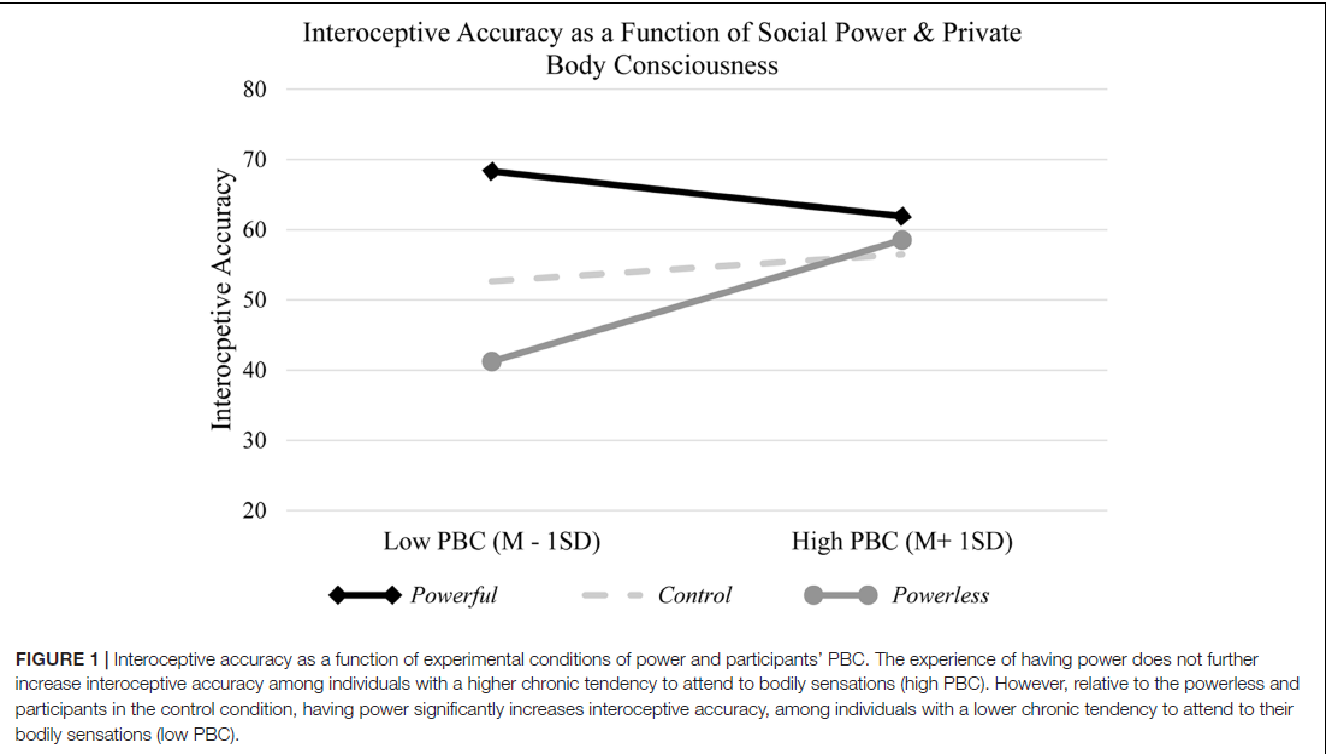'Gut feeling' in powerful individuals

In interviews and autobiographies, powerful people such as business magnates, well-known politicians, or high-ranked military commanders often emphasize the importance of relying on their gut feeling when making decisions. The question that comes to mind is whether the powerful are better at sensing internal signals than the average person.
Our research provides experimental evidence, for the first time, that powerful people are more accurate than the powerless and control groups in perceiving their bodily signals, a phenomenon known as interoceptive accuracy.
To show this, I and my colleagues designed a two-phase experiment. In the first phase, we measured the personality traits of our participants: 135 university students. They completed a questionnaire which assessed several things: the private body consciousness scale (PBC), which captures participants’ chronic tendency to focus on bodily sensations; the personal sense of power scale (PSOP), which measures chronic and general sense of power; and demographic questions such as age and gender.
The second phase took place two weeks later. We first measured participants’ baseline physiological markers, and then manipulated their power status using a “manager-subordinate” role-playing task. This is a well-established and widely-used procedure to induce feelings of having or lacking power among participants. Next, participants’ physiological reactions were measured again. Subsequently, we measured interoceptive accuracy using the Schandry heartbeat-detection task. Specifically, participants were asked to count their felt heartbeats for two sets of three randomly ordered trials of varying duration (25, 35, and 45 seconds).
Overall, our results indicate that relative to the people who were in the low-power and control conditions, those who were in the high-power experimental condition were more accurate in perceiving their body signals. Examining the role of individual differences in PBC further revealed that this effect is more pronounced among those with a lower chronic tendency to monitor internal sensations. However, among people with high chronic tendency to monitor internal sensations, experiencing power did not further increase accuracy in perceiving bodily signals.

Our findings offer a novel account for understanding and explaining the effects of social power. The present findings suggest that the experience of having power informs powerholders of their visceral signal by promoting a state of enhanced interoceptive accuracy. Therefore, power is not only a psychosocial resource that buffers external influences, but it is also a gateway to one’s feelings and visceral drives. The intensified experience of inner sensations subsequently shapes powerholders’ decisions and behaviors.
Further reading:
- Social Power Increases Interoceptive Accuracy Moeini-Jazani, M., Knoeferle, K., de Moliere, L., Gatti, E. & Warlop, L. 3-Aug-2017 In : Frontiers in Psychology. 8, 12 p., 1322

